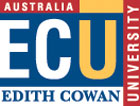Bachelor of Engineering Honours/Bachelor of Science
Bachelor of Engineering Honours/Bachelor of Science
This double degree program provides students with the opportunity to become qualified engineers with a strong background in a complementary branch of applied science. There is a growing demand in high-technology industries and research centres for engineers with multidisciplinary skills in technology, management, and relevant sciences. This program broadens the…
Categories
COURSE DESCRIPTION
This double degree program provides students with the opportunity to become qualified engineers with a strong background in a complementary branch of applied science.
There is a growing demand in high-technology industries and research centres for engineers with multidisciplinary skills in technology, management, and relevant sciences. This program broadens the overall knowledge of students in areas which are complementary to their technical skills. It offers a high level of flexibility as students are able to choose from a number of engineering and science specialist areas to select a combination that best suits their personal career aspirations.
Majors you can study in this course
One or more of the majors in this course is externally recognised when studied within this course.
Engineering
Chemical Engineering
Civil Engineering
Computer Systems
Electrical Power
Electronics and Communications
Instrumentation Control and Automation
Mechanical Engineering
Mechatronics
Petroleum Engineering
Science
Chemistry
Conservation Biology
Data Science
Environmental Management
Horticulture
Marine and Freshwater Science
Mathematics
Physics
Sustainability
Course learning outcomes
Demonstrate advanced knowledge of the underpinning natural and physical sciences and in depth understanding of specialist bodies of knowledge within the engineering and science disciplines.
Think critically, and apply established methods and research skills to the solution of complex engineering and science problems.
Apply systematic engineering synthesis and design processes to conduct and manage engineering and science projects, with some intellectual independence.
Demonstrate conceptual understanding of the mathematics, numerical analysis, statistics and computer and information sciences which underpin engineering and scientific disciplines and fluently apply both scientific and engineering skills, techniques, tools and resources.
Demonstrate clear and coherent oral and written communication in professional and lay domains.
Demonstrate a global outlook and knowledge of contextual factors impacting engineering and scientific disciplines including respect for cultural diversity and indigenous cultural competence.
Demonstrate effective team membership and team leadership to implement engineering or scientific projects according to relevant standards of ethical conduct, sustainable practice and professional accountability.
Demonstrate responsibility for own learning, professional judgement and an understanding of the scope, principles, norms, accountabilities and bounds of contemporary engineering and science practice.
Career Opportunities
Possible future job titles
Chemical Engineer, Design Engineer, Plant Engineer, Petrochemical Engineer, Civil Engineer, Environmental Engineer, Mechanical Engineer, Mechatronics Engineer, Oil and Gas Engineer, Process Engineer
REQUIREMENTS
There are various ways to meet our admission requirements, such as:
Secondary school results
Successful completion of one year of tertiary study from a recognised institution
Completed Diploma program from a recognised institution
English competency requirements:
IELTS Academic: An overall band minimum score of 6.0, with no individual band less than 6.0. (Results are typically valid for 2 years and online tests are not acceptable.)
TOEFL iBT: 70 (no individual score less than 17)
TOEFL Paper-Based Test (PBT): Minimum score of 550, including Test of Written English of 5 or better. (Results are typically valid for only 2 years.)
Pearson Test of English (PTE) Academic: 52, with no scores less than 50. (Results are typically valid for only two years.)
EDUCATIONAL INSTITUTION
Edith Cowan University (ECU) is a large, multi-campus institution serving communities in Western Australia and internationally.ECU was awarded university status in 1991, but despite its relative youth, the University has a proud history of more than a century of service to education in Western Australia and is recognised for its teaching and learning, excellence in research, and partnerships with the community.We have more than 23,300 students, including around 18,500 undergraduates and 4,800 postgraduates. Approximately 3,600 international students attend the University, originating from 104 countries.We are a progressive University with courses developed through ongoing industry input, and employing lecturers who engage fully with their students. We’re a university that knows while knowledge is important, understanding comes from experience –experience that enables you to adapt what you’ve learned to whatever opportunities come your way. Because that’s when you do more than just survive in this world. You thrive in it.




